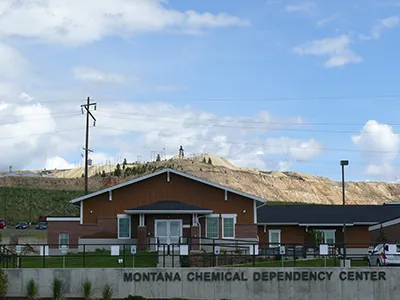The Butte, Montana-based Montana Chemical Dependency Center (MCDC) is a private residential treatment center devoted to provide complete care to those suffering from drug and alcohol addiction. With 48 beds total—16 for men, 16 for women, and an extra 16 for withdrawal management services—MCDC provides a comprehensive range of treatments, including rigorous inpatient treatment, aftercare support, and detoxification. Situated in a residential location, the facility provides an organized setting intended to promote recuperation together with contemporary facilities.
The programs offered by MCDC are especially designed for those who are recommended by a Montana State Licensed Addiction Counselor and need a high degree of treatment. The referral procedure guarantees that new program participants get the proper supervision and care required for their recuperation.
For a lot of MCDC consumers, detoxification is often an essential initial step. Because it enables people to start therapy without the psychological and physical distractions of withdrawal symptoms, this procedure is crucial. A qualified medical staff continuously monitors clients throughout detox, offering the necessary care and modifications to assist minimize the dangers and pain of withdrawal.
The inpatient care program at MCDC is the centerpiece of its services. Throughout the course of therapy, clients reside on campus and get round-the-clock care and monitoring. The duration of stay is customized to meet the unique demands of each client, guaranteeing a unique approach to rehabilitation. In addition, the facility provides access to exercise areas, transportation, and other facilities that enhance the customers' general well-being.
The therapeutic approaches used in MCDC's treatment program are focused on comprehending the underlying reasons of addiction and creating coping mechanisms to avoid relapse. A mix of case management, educational sessions, peer support groups, individual and group therapy, and self-improvement activities are included in the treatment plan. Beyond the inpatient stay, the institution provides comprehensive treatment via peer support groups, 12 Step programs, vocational training to promote long-term recovery, and aftercare services that link clients to community resources.
The Montana Chemical Dependency Center ensures that access to treatment is not impeded by financial obstacles by operating on a sliding fee schedule that is dependent on a client's capacity to pay. Although out-of-network benefits may vary, it is advised that customers verify their coverage with their provider. The facility may be in-network with the majority of commercial insurance plans.
Montana Chemical Dependency Center Information
Treatment
Who We Treat
- Male and Female
Treatment Focus
- Co-Occurring Disorders
- Drug Addiction
- Recreation Therapy
- Detox
- Alcohol
Approaches
- Individual Treatment
- Evidence-Based
- Group Therapy
- Cognitive Behavioral Therapy (CBT)
- 1-on-1 Counseling
- Recreation Therapy
- Life Skills Training
- Relapse Prevention Counseling
Conditions We Treat
- Depression
- Anxiety
- Co-Occurring Disorders
Substances We Treat
- Alcohol
Languages
- English
Aftercare
- Recovery Coach
- Continuing Care
- Peer Mentoring
- Support Meetings
- Mentoring and Peer support
Level of Care
- Residential Rehab
- Co-Occurring Mental Health
- Detox
- Aftercare/Continuing Care
Experience
Personal Amenities
- Basketball Court
- Fitness Center
On-Site Activities
- Physical Fitness
Smoking and Vaping Policy
- Smoking Not Allowed
- Vaping Not Allowed
Additional Locations
Montana Chemical Dependency Center Accepts The Following Insurance Plans
Find the best treatment options. Call our free and confidential helpline today!







